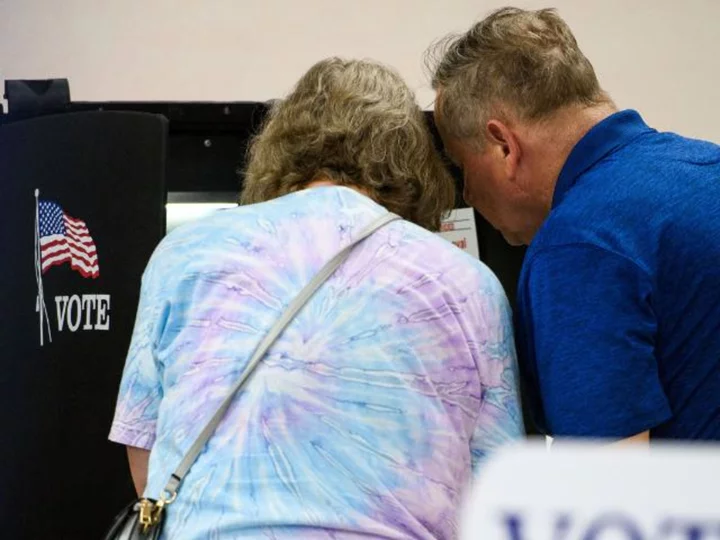North Carolina's Republican-controlled legislature passed a bill Wednesday that would make major changes to the state's election laws, the latest in efforts by GOP-led jurisdictions across the country to rewrite election procedures and impose restrictions on voting practices.
Senate Bill 747 would overhaul the existing election laws of the Tar Heel State, adding new restrictions and deadlines and further empowering partisan poll watchers, among other changes.
The bill next heads to the desk of Democratic Gov. Roy Cooper, who slammed the legislation and other election-related measures that state Republicans have pushed.
"[Using] the Big Lie of election fraud, this same legislature wants to block voters they think won't vote Republican, legitimize conspiracy theorists to intimidate election workers and anoint themselves to decide contested elections. That's the real fraud," Cooper said in a statement Thursday.
As governor, Cooper could choose to veto the new elections bill. But state Republicans gained a supermajority in the legislature earlier this year when Democratic state Rep. Tricia Cotham switched parties just months after being elected to a deep-blue Charlotte-area district, meaning GOP lawmakers can now override Cooper's veto.
Such veto overrides have become an increasingly common occurrence in North Carolina this legislative session. In July, Cooper vetoed three bills that affect LGBTQ youth, but the state legislature voted Wednesday to override those vetoes, along with three others.
SB 747 would make significant changes to voting by mail -- changes that Democrats and voting rights advocates have said could likely lead to fewer votes being counted. The legislation eliminates the current grace period that allows mail-in ballots arriving three days after Election Day to be counted as long as they are postmarked by the date of the election. Instead, mailed absentee ballots would have to be received by the county board of elections by 7:30 p.m. on Election Day.
The new legislation would prevent state and county election boards from accepting any private monetary donations to assist in administering elections.
The bill would change the current same-day registration rules during the early voting period. Under the new legislation, same-day registrants would have to use a "retrievable ballot" that can be discarded if the county board of elections cannot verify their address. The bill further states that "if the Postal Service returns the first notice required under G.S. 163-82.7(c) as undeliverable before the close of business on the business day before canvass, the county board shall not register the applicant and shall retrieve the applicant's ballot and remove that ballot's votes from the official count."
The legislation also would eliminate the requirement for early voters to sign an absentee request application.
Republican state Rep. Grey Mills said that since the majority of North Carolina voters choose to cast their ballots during the early voting period, the bill sponsors "rewrote the [early voting] statutes to more reflect Election Day statutes."
"The whole bill is aimed at improving our elections, improving the integrity of our elections, and helping our elections work better for everybody in North Carolina," Mills said Wednesday.
Partisan poll watchers would be further empowered under the legislation, which would give them permissions to use electronic devices to take notes; listen to conversations between voters and election officials; observe opening and closing procedures; and move more freely around the voting area.
"This is an invitation to remake the role of poll observers into partisan operatives who are intent on intimidating people and causing trouble. Why would anyone want that?" Democratic state Sen. Natasha Marcus asked Wednesday night, as she listed her criticisms of the bill before the final concurrence vote. "The bill undermines voting rights and fair elections."
In addition to holding a veto-proof majority in the legislature, Republicans now also have a majority on the North Carolina Supreme Court, raising the prospect they could prevail in any court fights over the election overhaul measure.

